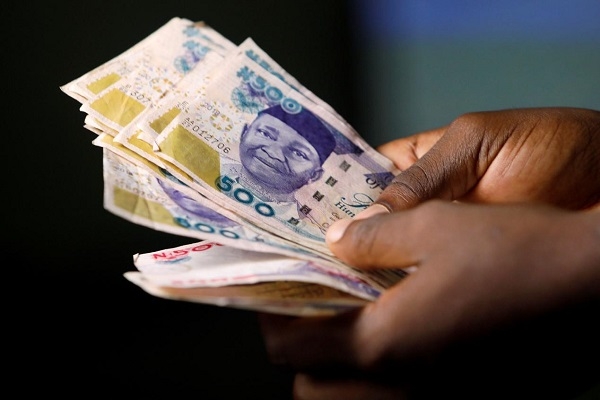
The Nigerian naira was last exchanged at N1230.61 per US dollar at the official window, according to information from the FMDQ Securities Exchange. In a report, Goldman Sachs forecast that exchange rate will settle around N1200 over 12 months.
In the parallel market, exchange rate settled at N1230 as the authority continues to cap returns on FX spot to invisible users in the dark economy.
The fast, furious albeit easy exchange rate strengthening has been driven by FX flood in the currency markets. The Central Bank of Nigeria (CBN) has risen up to the occasion managing exchange rates fluctuations across the markets.
“The Central Bank has raised regulatory bar to reduce spurious demand on Bureau De Change (BDCs) operators. This was made possible selling USD 10,000 to eligible operators at below market rate.
“The last FX auction detailed showed that the apex bank sold US$10000 at N1101 to 1508 operators as part of efforts to stabilize the naira”, analysts said in a note shared with MarketForces Africa..
FX inflows in the market has increased significantly since the apex bank began to pay higher interest rates on government borrowing instruments. This has attracted hot money into the economy and government has released plan to issue foreign currency bonds in the second quarter.
“There will be a time –maybe one year – where foreign investors would liquidate their investment without rolling over. This suggests that continuous sales of OMO bills is short term approach which could result in bloated balance sheet funding costs for the CBN”, analysts said.
Despite rally in the commodity market, the Nigeria’s foreign reserves continued to track lower. FX accretion experienced in the first quarter of 2024 has slowed down as the monetary authority began to reduce interest rates on OMO and Treasury bills.
According to information from the central bank, gross external reserves declined to $33.361 billion, covering about 7 months of import bills based on Q3 trade data. Banks Face Risks over 24hrs FX Positions Sell Down
Nigeria’s state-oil company NNPC owes around $3 billion to fuel traders for imported petrol, three sources told Reuters, as the tumbling naira currency and rising global fuel prices have increased the effective subsidy it is paying.
The payment backlog is a blow to the government’s efforts in Africa’s largest economy to shore up its strained finances by curbing costly energy subsidies.
“They are paying, but it’s slow,” one of the sources with knowledge of the matter said. Five sources said that NNPC – the country’s main importer of petrol – was taking more than 130 days to make the payments instead of within 90 days.
For most analysts, lasting solutions to naira strengthening is to exports more than the nation’s imports record. “There is no other way out of FX palaver that has persisted for years. It looks like the naira is gaining now but how long would the forex buffer the apex bank is using would be available?”.

